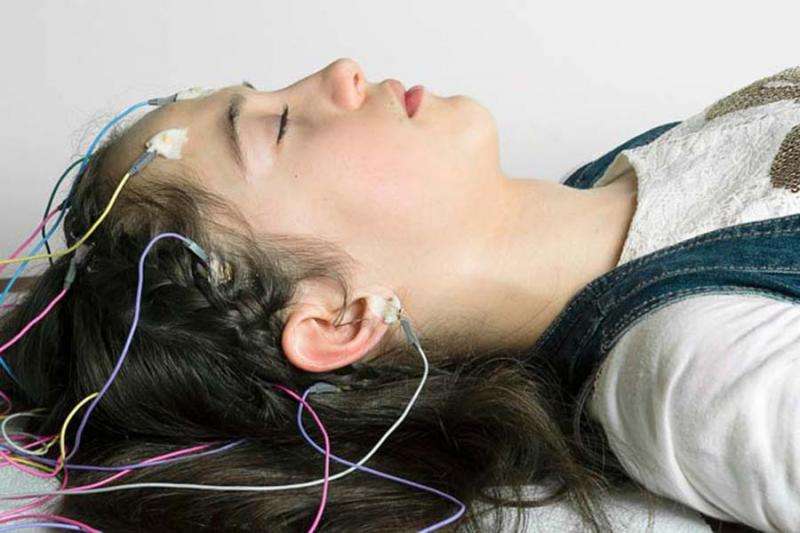Science, law and the 'badly behaved' child

Mozart in the womb, learning French as a toddler, accelerated reading, maths for the gifted and talented … the list goes on and on. A brain-based approach to child-rearing can seem almost inescapable for the modern parent.
The expectation is that these intensively nurtured children will be moulded into perfect young humans – with perfect brains.
Notwithstanding the fact that perfection has its own problems, what about the children who are not always seen as "perfect", whose brains are seen as damaged in some way through disability or neglect?
It is those children who concern Dr Karen O'Connell, a discrimination law expert researching the shifting sands of disability and behaviour.
Dr O'Connell says the idea of casting a brain-based net over everything to do with children at first looks like a new scientific approach. She says advances in genetics and the brain sciences are expanding the group of socially unacceptable behaviours identified as biologically based.
However, the brain-based model is creating new forms of stigma and inequality for the child or youth with behavioural problems, especially among boys.
"The brain has taken on this new cultural force, but not all brains, on this approach, are created equal," says Dr O'Connell. "We're talking all the time about neuroscience, neuroplasticity, but some brains are considered to be more plastic than others."
Dr O'Connell and colleague Professor Isabel Karpin, from the Law School at the University of Technology Sydney (UTS), are in the midst of a four-year project investigating how the law responds to people whose socially challenging behaviours are increasingly likely to be defined as a disability.
Dr O'Connell says research shows people on the autism spectrum are disproportionately represented in certain categories of criminal offences, such as arson, stalking, sexual offences, violence and neglect, and computer offences. More generally, the child who has challenging behaviours arising from a disability is more likely than other children to come before the law. Yet such a child is also supposed to be protected under disability discrimination laws and included in public life.
"Behavioural disabilities evoke as much hostility as they do sympathy," she says. "The law struggles to see vulnerability when it exists in tandem with aggression or seemingly 'antisocial' behaviour.
"There's a lack of understanding or hostility around that idea that a child who's behaving badly may have some right to protection because of that. That's a very confronting idea for a lot of people.
"There's naturally a very strong view in segments of society that the student who once would have been thought of as simply badly behaved just needs discipline – and, ultimately, if that fails, exclusion. A lot of people believe kids like that should not even be in mainstream schools.
"There's a lot of sympathy for teachers and the pressure they're under. And there's an idea that if the kids don't fit the system, you need to take the kids out of the system, rather than change the system."
The Disability Discrimination Act was amended in 2009 to refer explicitly to behaviour that is a manifestation of a disability, says Dr O'Connell. "So it covers both the behavioural disability itself as well as any behaviour that arises from having a disability."
The catch is that in the school context, students may have a disability as defined in law, but without necessarily having a diagnosis that is recognised by their school.
"A student with bad behaviour could invoke the protection [and inclusion] of discrimination law, but the same behaviour in a juvenile justice context is seen as antisocial and attracts a more exclusionary response."
Dr O'Connell's field work has included visits to schools, including one in a remote Aboriginal community. There, she says, teachers told her most of their students were in effect "disabled by trauma, by foetal alcohol spectrum disorder (FASD), by a range of problems, but only a very tiny number had been diagnosed with a disability".
One interviewee described her class: "Pretty much half of my kids could have an aide really. They're two years behind. They're not learning. They take ages to get concepts. They need one-on-one help."
Dr O'Connell says there are significant hurdles to obtaining a diagnosis, with the result that children are often denied an adequate education. Rather, they become enmeshed in the juvenile justice system.
Her research has also helped Dr O'Connell flesh out a picture of stark inequality, particularly for boys. "If you look at how disability is defined, boys are disproportionally defined with just about everything," says Dr O'Connell.
"In the statistics on segregated schooling, it's just stark. With normative disabilities – those that have set criteria – the numbers are more equal, but as soon as there is a subjective judgment required, the numbers soar for boys. People are investing in this fear of the boy – out of control, potentially violent."


















